
Hiroshima Peace Memorial (Genbaku Dome) Stock Image Image of dome
Hiroshima Peace Memorial Park, located in the center of Hiroshima City was built in its current location near the hypocenter of the atomic bombing during WWII on August 6, 1945, in hopes of creating lasting world peace. In addition to the Atomic Bomb Dome World Heritage site, the park is home to the Cenotaph for the Atomic Bomb Victims, where the names of all those who lost their lives are.

5five5 Hiroshima Peace Memorial (Genbaku Dome) (Japan)
Genbaku Dome is the only building left standing by the first atomic bombing on Hiroshima, on 1945, August 6. Initially an exhibition hall to promote Hiroshima prefecture's industries, the ruins are now the Hiroshima Peace Memorial enlisted in the Unesco World Heritage List. Contents The historical testimony of the A bomb
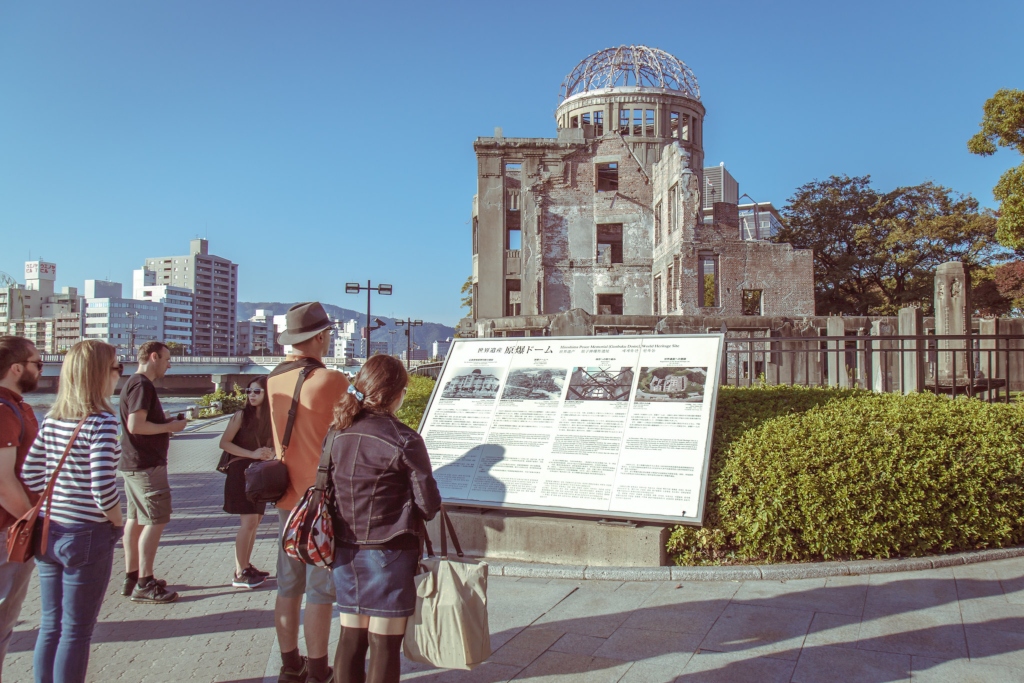
Hiroshima Peace Memorial (Genbaku Dome) CIPDH UNESCO
The Hiroshima Peace Memorial, Genbaku Dome, is designated an Historie Site under Article 69 of the 1950 Law for the Protection of Cultural Properties. This stipulates tnat Historie Sites snould be properly managed bY the owner or relevant local government autnority, tnat permission must be sought from the national Government for any.
.jpg)
Postcards on My Wall Hiroshima Peace Memorial (Genbaku Dome), Japan
Introduction In December 1996, an architectural structure from Hiroshima became a World Heritage Site. This building was officially recorded as the Hiroshima Peace Memorial (Genbaku Dome). It is also known as the A-bomb Dome.

Hiroshima Peace Memorial Most Beautiful
It has been preserved as it was after the blast, one of few buildings so close to the hypocenter to survive even partially. However, in a 42.7-hectare (105.5 acres) buffer zone around the building, the Hiroshima Peace Memorial has been created, marking the event. Genbaku Dome Why is Hiroshima Peace Memorial a UNESCO World Heritage site?
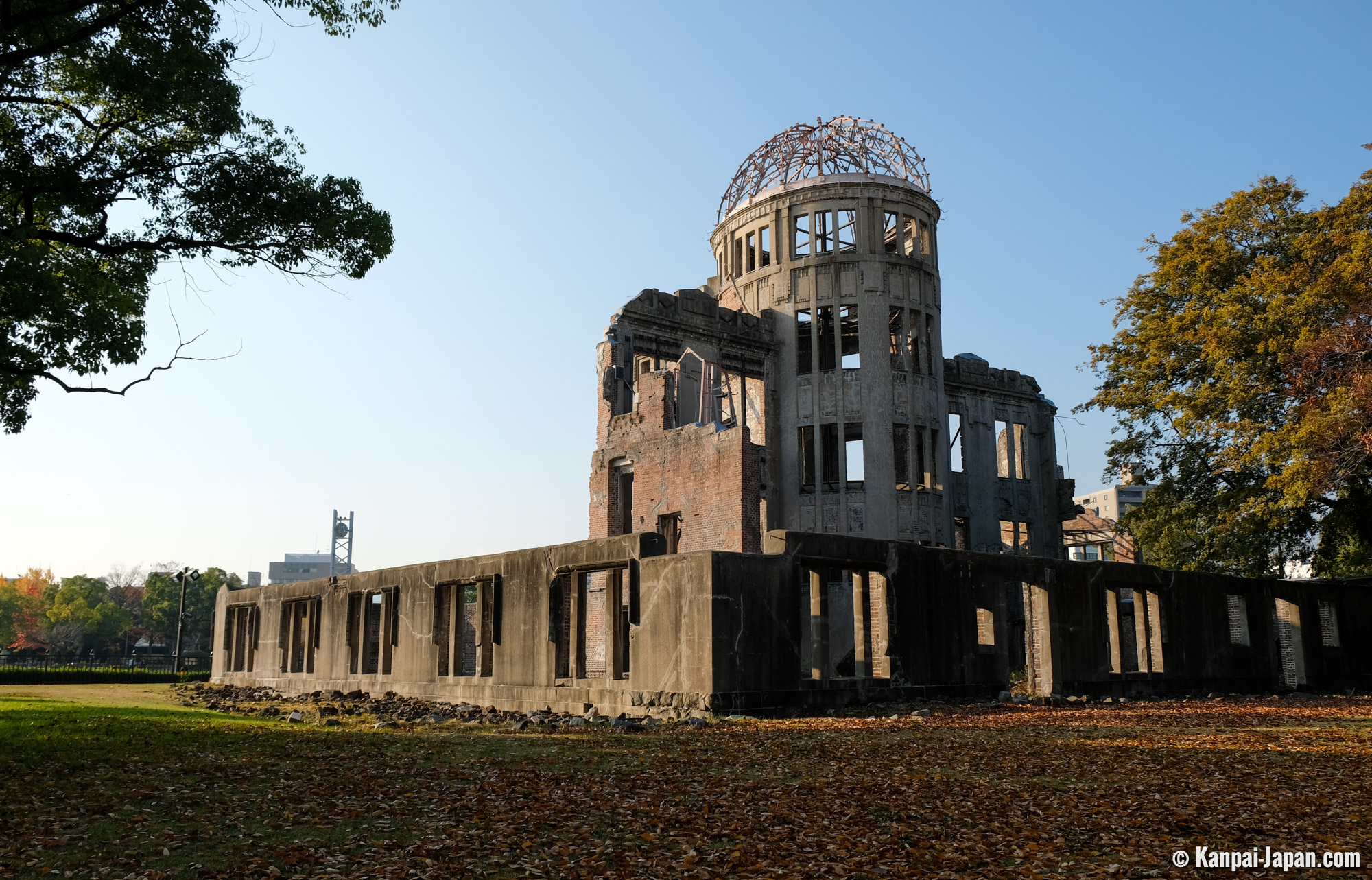
Genbaku Dome The Remains of the Atomic Bombing of Hiroshima
Genbaku Dome: Visitors to the city can also see Hiroshima's Atomic Bomb Genbaku Dome -- a UNESCO World Heritage Site. When the United States dropped the bomb on August 6, 1945, it exploded just.
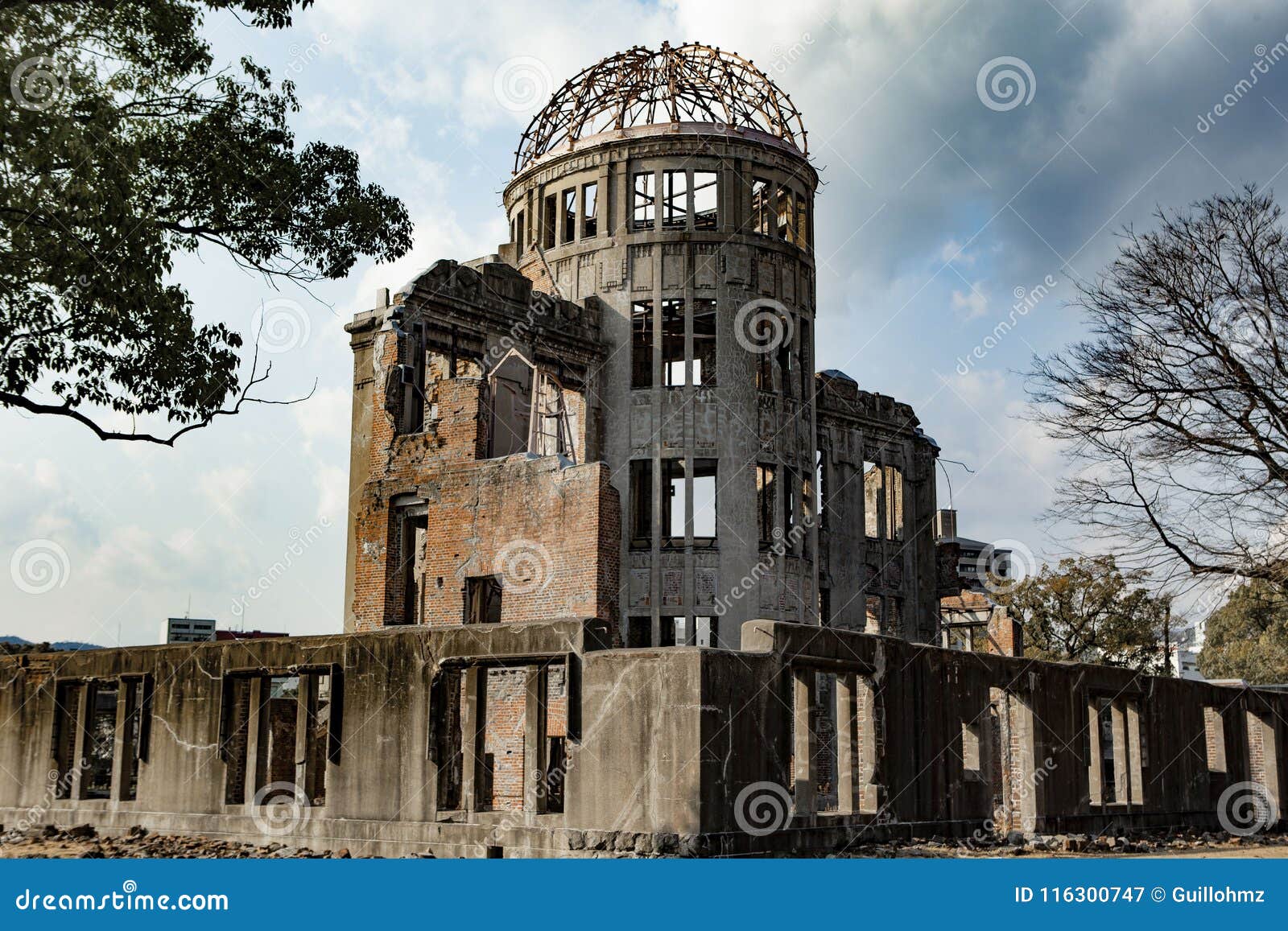
Hiroshima Peace Memorial Genbaku Dome Stock Image Image of injuries
The Hiroshima Peace Memorial (Genbaku Dome) was the only structure left standing in the area where the first atomic bomb exploded on 6 August 1945. Through the efforts of many people, including those of the city of Hiroshima, it has been preserved in the same state as immediately after the bombing.
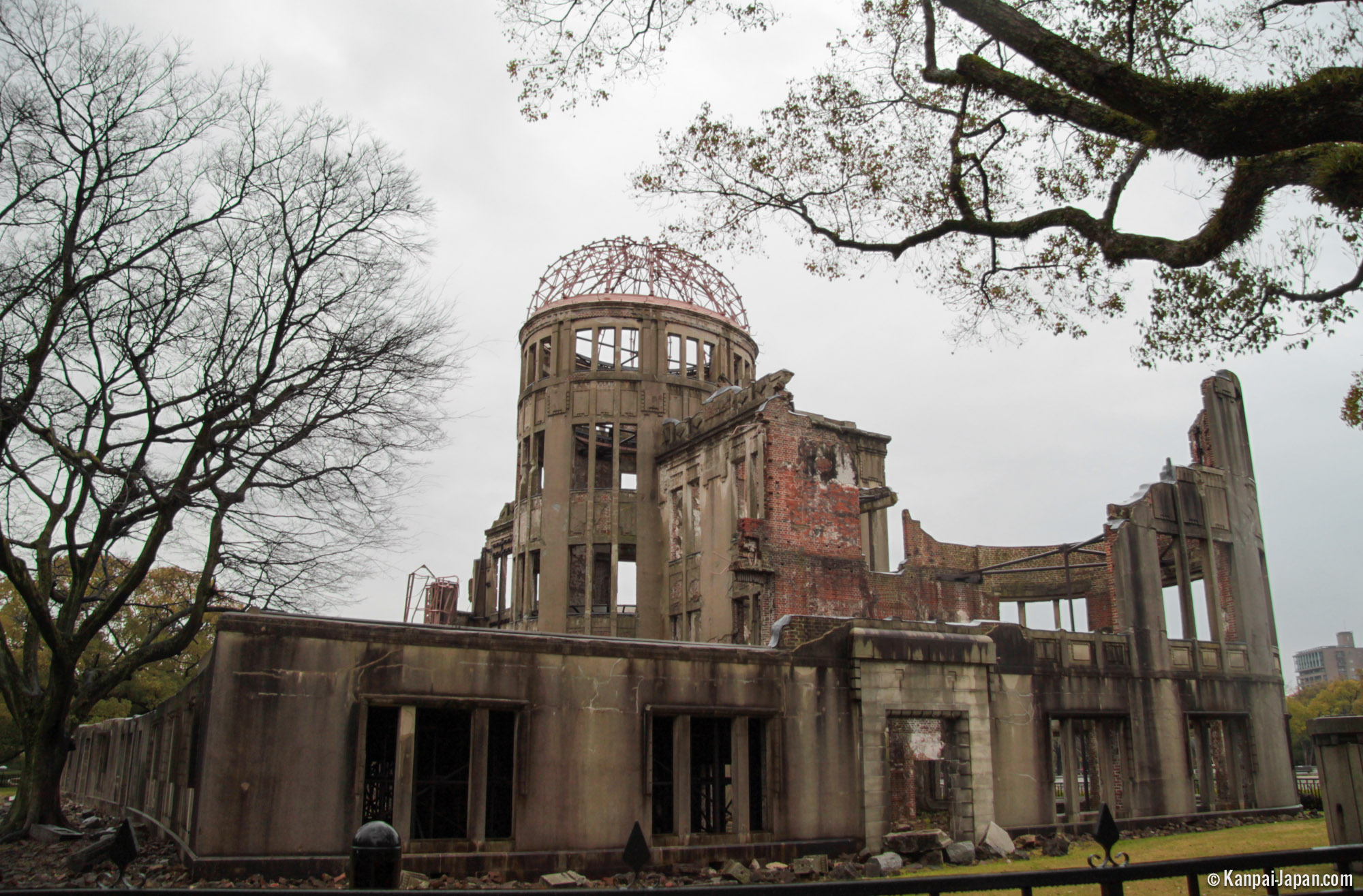
Genbaku Dome The Remains of the Atomic Bombing of Hiroshima
Subscribe 114K views 11 years ago The Hiroshima Peace Memorial (Genbaku Dome) was the only structure left standing in the area where the first atomic bomb exploded on 6 August 1945. Through the.
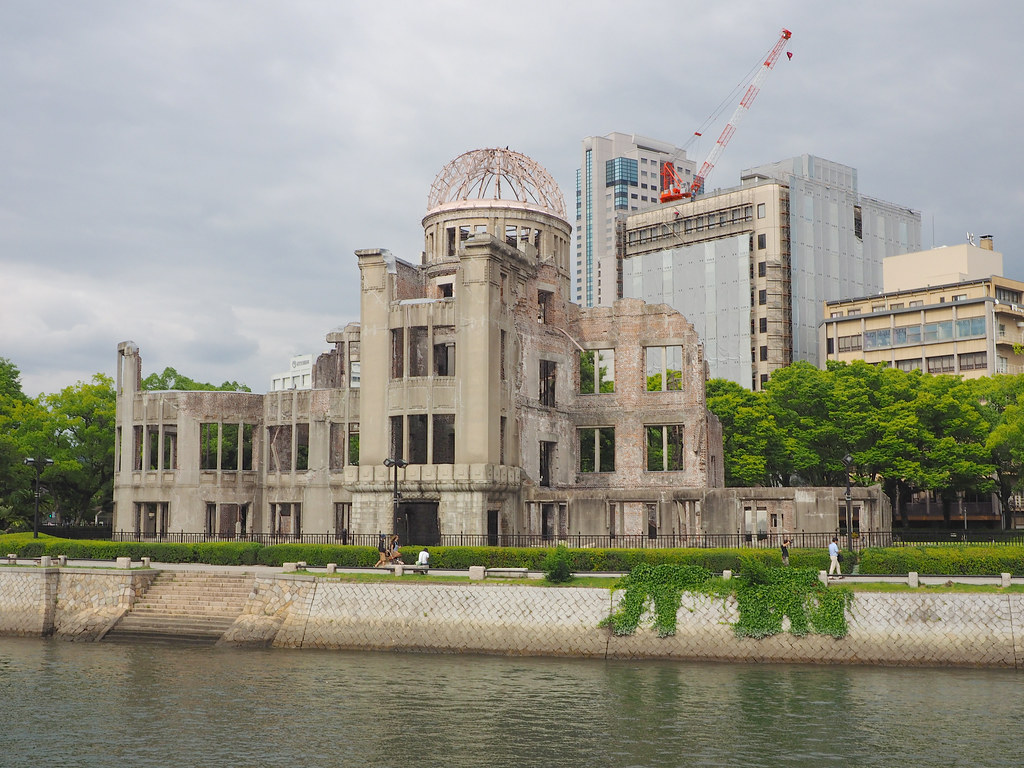
Hiroshima Peace Memorial (Genbaku Dome) Clay Gilliland Flickr
The Hiroshima Peace Memorial Park was planned and designed by the Japanese Architect Kenzō Tange at Tange Lab. The location of Hiroshima Peace Memorial Park was once the city's busiest downtown commercial and residential district. The park was built on an open field that was created by the explosion.

Hiroshima Peace Memorial (Genbaku Dome) GoUNESCO Go UNESCO
Hiroshima Peace Memorial, also called the Atomic Bomb Dome or A-Bomb Dome (原爆ドーム, Genbaku Dōmu), is in central Hiroshima, Japan.It is part of the Hiroshima Peace Memorial Park. UNESCO named the dome a World Heritage Site in 1996. The dome is the ruined Hiroshima Prefectural Products Exhibition Hall. It was kept as a memorial to the people who were killed in the atomic bombing of.

Hiroshima Peace Memorial (Genbaku Dome) GoUNESCO Go UNESCO
The Hiroshima Peace Memorial (広島平和記念碑, Hiroshima Heiwa Kinenhi), originally the Hiroshima Prefectural Industrial Promotion Hall, and now commonly called the Genbaku Dome, Atomic Bomb Dome or A-Bomb Dome (原爆ドーム, Genbaku Dōmu), is part of the Hiroshima Peace Memorial Park in Hiroshima, Japan and was designated a UNESCO World Heritage Site in 1996.
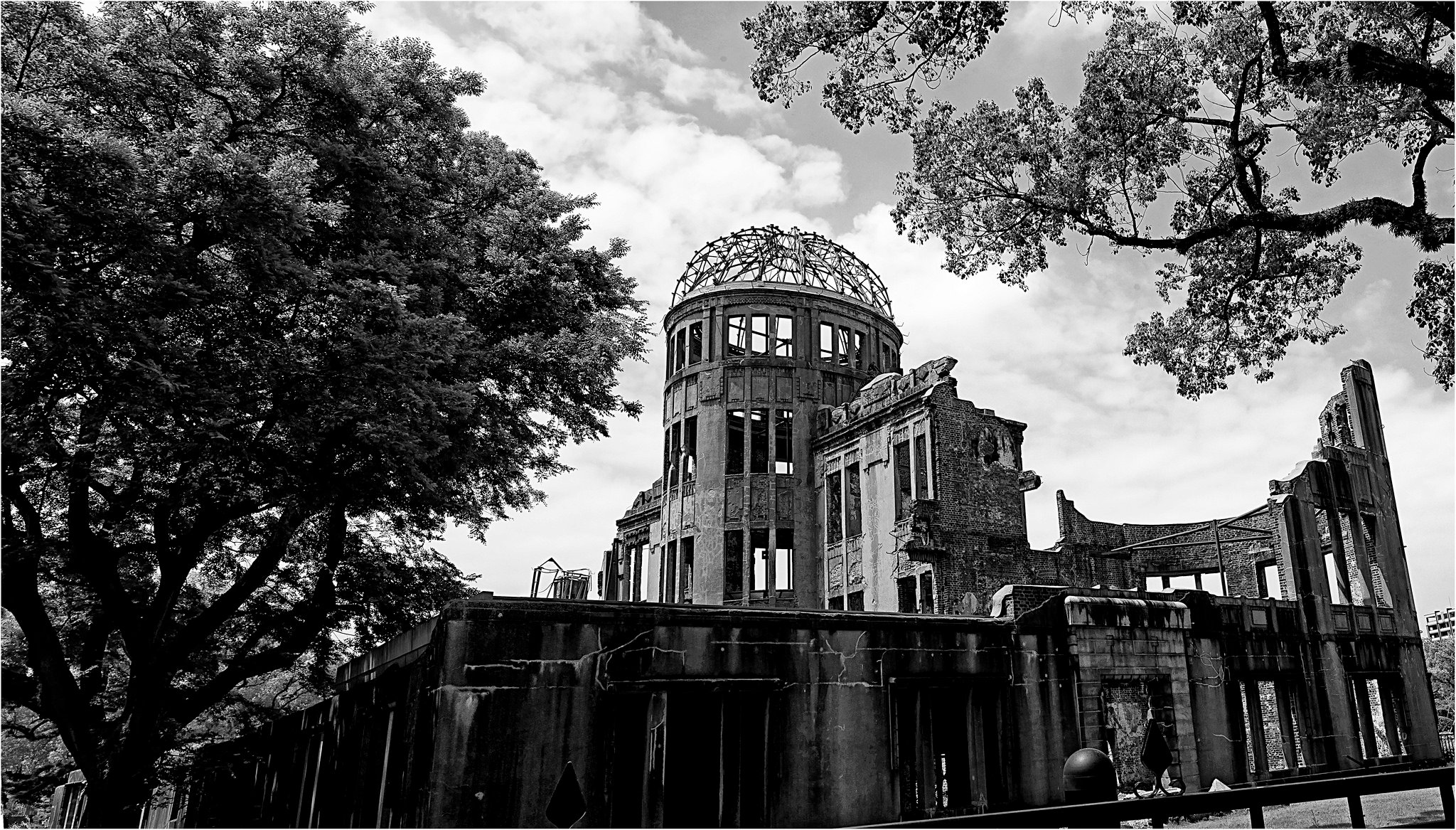
The FPA's Must Reads (August 915) Foreign Policy Blogs
Today, the Dome is a UNESCO World Heritage site and the Hiroshima Peace Memorial, where it serves as a physical a reminder of the horrific destruction of atomic power—and humanity's power.

Genbaku Dome, Hiroshima Steden, Foto's
The A-Bomb Dome, also known as the Hiroshima Peace Memorial, is what remains of the former Prefectural Industrial Promotion Hall. The building served as a location to promote Hiroshima's industries. When the bomb exploded, it was one of the few buildings to remain standing, and remains so today.

Hiroshima Peace Memorial Genbaku Dome Editorial Photo Image of
Hiroshima Peace Memorial, ruins of a building that was destroyed by an atomic bomb in Hiroshima, Japan, and that is preserved as a memorial to those killed and as a reminder. At 8:15 AM on August 6, 1945, the U.S. B-29 bomber Enola Gay dropped the world's first atomic bomb used in war on the city of Hiroshima.
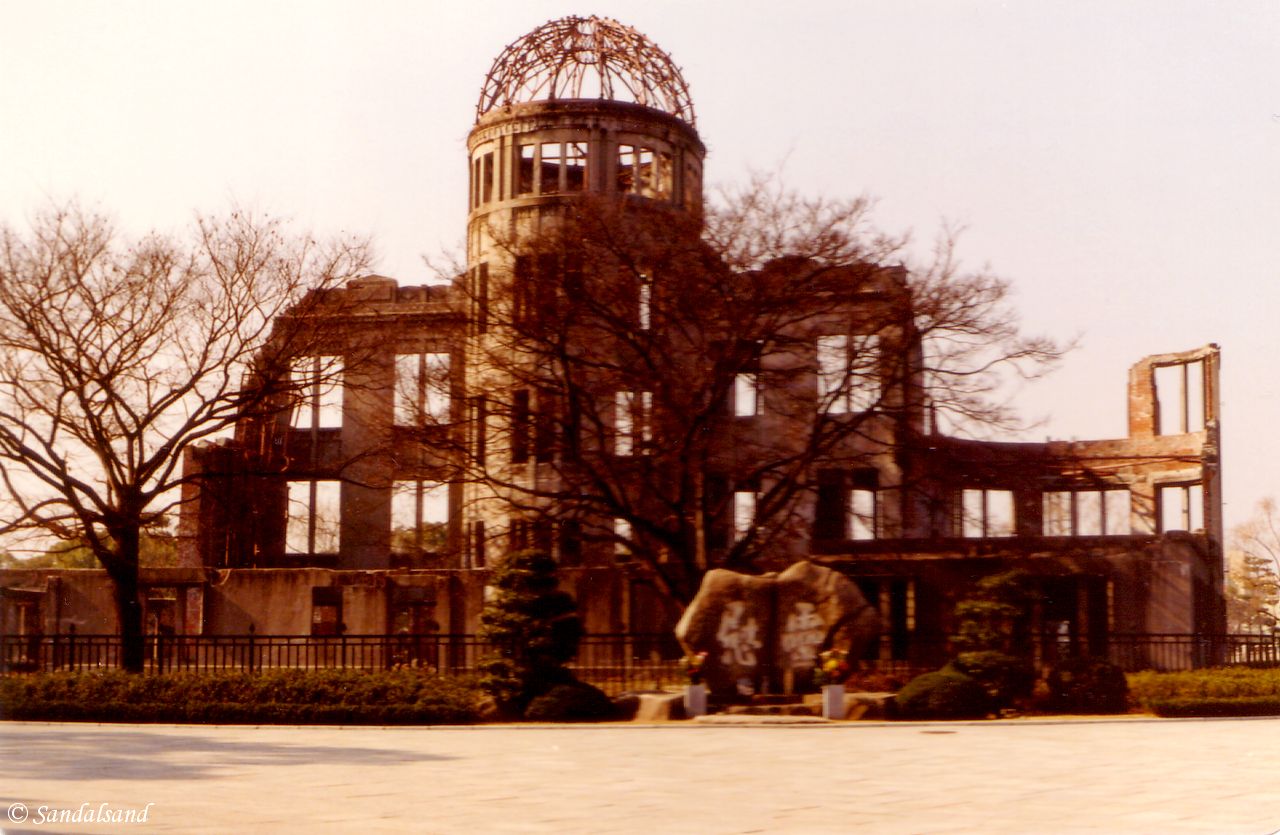
World Heritage 0775 Hiroshima Sandalsand Global
English 日本語 Hiroshima Peace Memorial (Genbaku Dome) A river bus passes the Genbaku Dome on the Motoyasu River Colored postcard of famous places in Hiroshima (Collection of Hiroshima City Archives) The Genbaku Dome before the atomic bombing (Hiroshima Prefectural Industrial Promotion Hall)

Hiroshima Peace Memorial Park GaijinPot Travel
Showa 20 (1945) august 6, 8:15 a.m. The first atomic bomb in human history exploded at an altitude of about 160 meters southeast of the Hiroshima Prefectural Industrial Promotion Hall and about 600 meters.